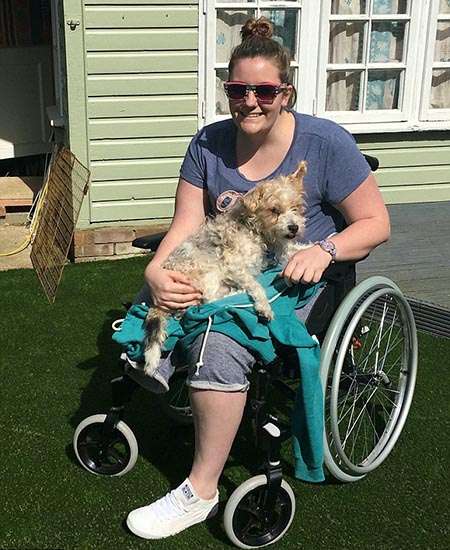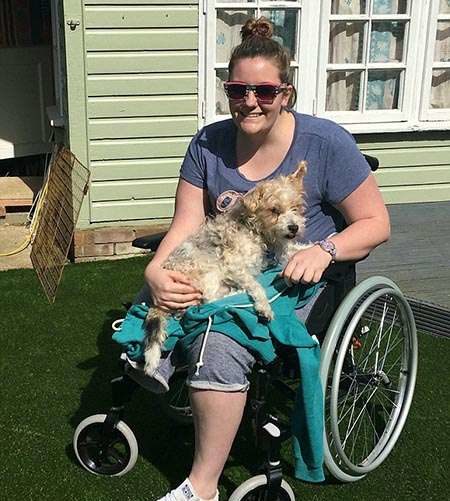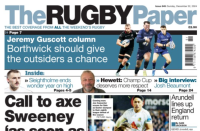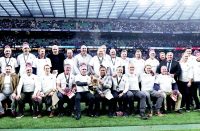 The second National Rugby Awards took place on Thursday and what a day it was, as professional clubs, grassroots clubs, schools and referees all came together to celebrate the achievements of last season.
The second National Rugby Awards took place on Thursday and what a day it was, as professional clubs, grassroots clubs, schools and referees all came together to celebrate the achievements of last season.
With the start of the new season this weekend, it was appropriate that the last act of last season should take place just days before at the home of English rugby in Twickenham.
The individual, team and club awards were celebrated by all as what many now call a game divided into two (amateur and professional) were all joined in the emotion of the night.
If there was a divide, it was probably best illustrated by the celebrations of each section with the amateurs more than willing to uphold the traditional ‘party animal’ image of rugby players, while the professionals were ‘soberly’ professional.
The awards and their winners outlined in today’s paper show how diverse the game is and the positive impact it can have on many communities and individuals.
Although not conceived by the RFU, credit must be given for how quickly they have embraced these awards, making it possible for a ‘once in a lifetime’ experience for many of the grassroots nominees to see parts of the Twickenham stadium that are normally ‘off limits’ for all but a chosen few.
Meeting friends and club mates at pitch side within touching distance of the pitch is special and reminded me of when I was playing.
Back then, despite being an England player attending a training session at Twickenham and using the changing rooms and facilities, we were not allowed on the pitch, even in the days before the match.
Only the goal kickers were allowed to walk on the hallowed turf while we humble forwards were sent off to the dead ball area for handling practice and then off to the carpark for the scrummaging session.
At the awards ceremony I sat beside a young female player, a fellow prop, so we had lots to talk about.
During our conversation, she told me something that in all honesty shocked, surprised and disappointed me, something that having played in the front row for over 40 years is quite difficult to do.
I haven’t had time to check all the facts but, if true, it has changed my view of what I thought was one of the best things to come out of the RFU since its inception.
At the beginning of this year, playing a game for her club Bletchley, Gracie Matthews, 24, suffered a knock during a routine tackle in a match against local rivals Olney, which dislocated her knee. Unfortunately, she severed blood vessels around the joint stopping blood flow to her lower leg muscles causing them to die and forcing doctors to amputate her leg just above the knee.
Gracie has been fairly sanguine about the injury and its devastating consequences and is hoping to continue her sporting career despite her injury.
In attempting to rebuild her life and deal with the financial implications of her injury, she approached the RFU Injured Players Foundation for some help.
The IPF was set up in 2008 incorporating SPIRE charity and is dedicated to life-long care for catastrophically injured players.
The foundation was in part started to combat the rising cost of insurance that the RFU, uniquely among sport’s national governing bodies, paid to insure all amateur players for serious and catastrophic injuries.
Obviously, when the game went professional, the cost of insurance was rapidly becoming prohibitive and something needed to be done if players were to remain ‘protected’.
The former director of finances (Nick Eastwood) calculated it was possible to fund whole life care for the low number of catastrophic injured players with a captive fund for a lower sum than to continue to pay rising insurance costs and the IPF was born.
The IPF have made a ground breaking difference in how families and injured players are looked after. Unlike the old insurance, that could take up to 18 months to pay out, the IPF help fund travel, accommodation and other essentials from the first few days after injury.
What shocked me is that I was told Gracie’s application has been turned down. It would appear her injury does not fall into what the IPF define as serious enough to be granted the immediate and lifelong support to empower her to live a full and independent life.
On reading the IPF website, the small print says: “We support players with serious spine and head injuries that result in significant permanent disability.”
Whil I understand the IPF cannot be expected to fund every injury, the amputation of a leg is pretty much as debilitating as a spinal injury and just as catastrophic and permanent.
As injuries such as Gracie Matthews has suffered are even rarer than the low number of catastrophic spine and head injuries, I would hope the IPF would revisit this case and give Gracie all the help and support she deserves.























